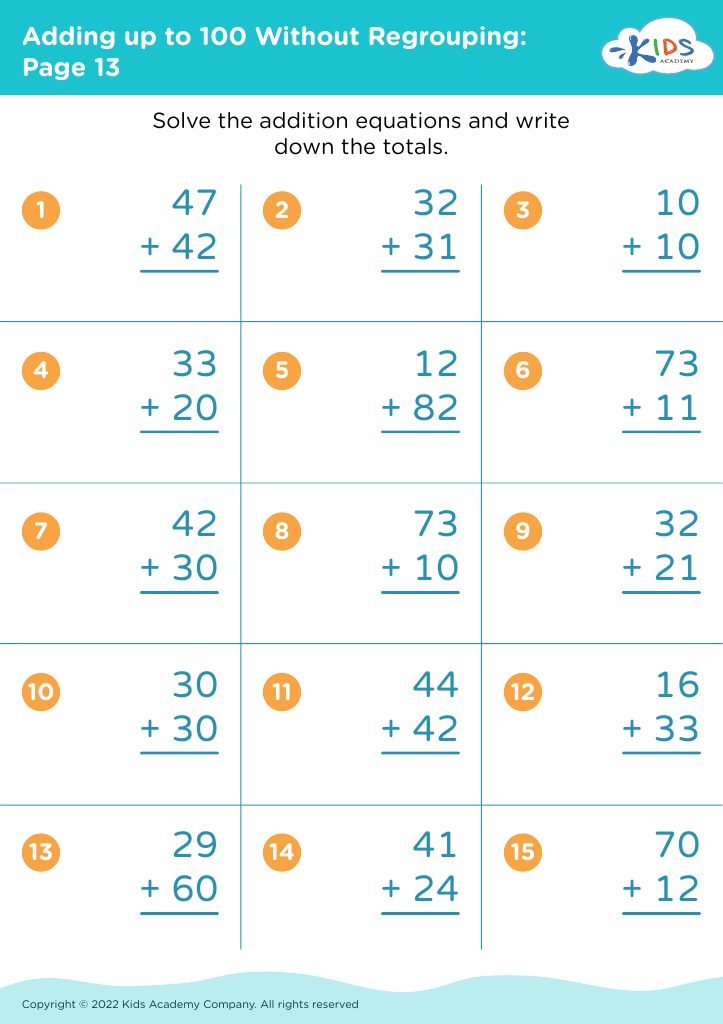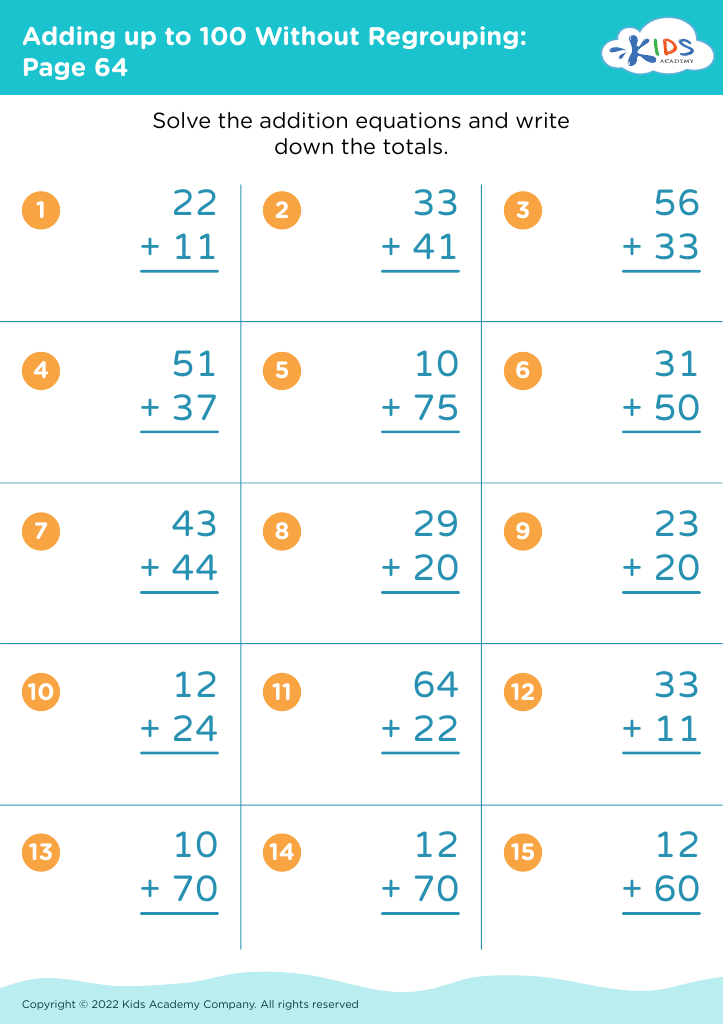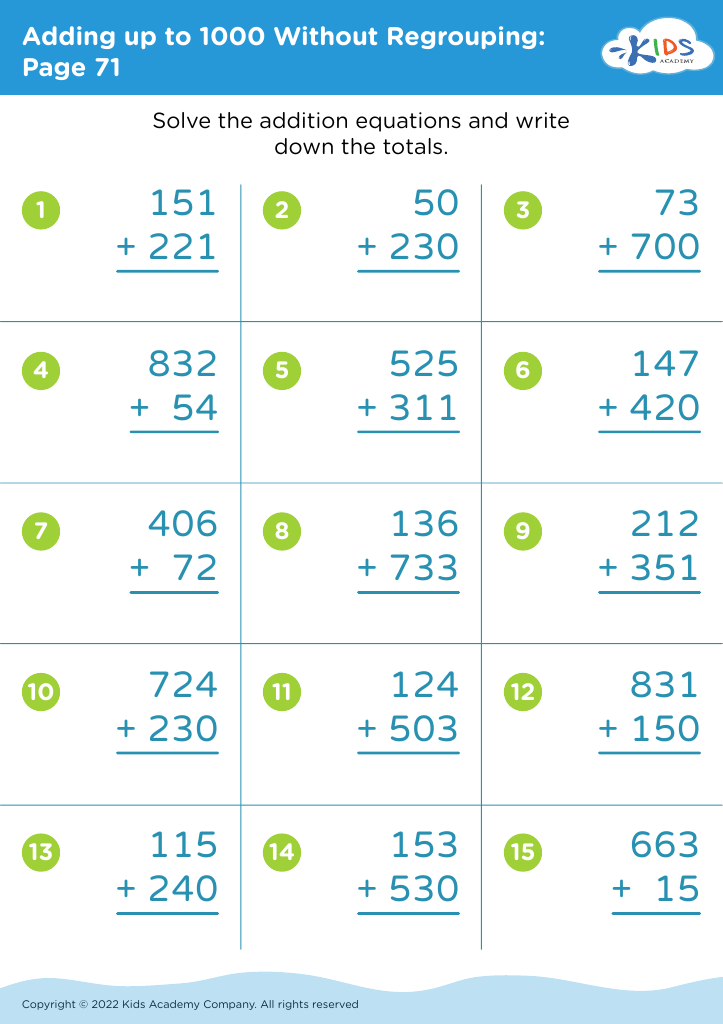Understand sequences Addition Worksheets for Ages 4-7
5 filtered results
-
From - To
Welcome to our "Understand Sequences Addition Worksheets" specifically designed for children aged 4-7! These engaging worksheets aim to introduce young learners to the concept of sequences through a fun addition approach. Each activity allows kids to practice their addition skills while recognizing patterns and sequences in numbers, fostering a strong foundational understanding of math. Our worksheets include colorful illustrations and interactive exercises that captivate children’s attention and enhance their learning experience. Perfect for both classroom use and at-home practice, these resources promote critical thinking and problem-solving skills. Encourage your child's mathematical growth with our thoughtfully crafted sequences addition worksheets!
Understanding sequences and addition is crucial for young learners aged 4-7, as it lays the foundational skills needed for more complex mathematical concepts. At this age, children begin to build their cognitive abilities and develop problem-solving skills through exploration and play. Sequences help them recognize patterns, which are essential for logical reasoning and predicting outcomes.
For parents and teachers, fostering a strong grasp of these concepts not only supports children's academic success but also encourages critical thinking abilities that extend beyond math. Engaging with sequences and addition introduces concepts like counting, combining quantities, and understanding numerical relationships. This understanding boosts their confidence and prepares them for future mathematical challenges.
Moreover, emphasizing sequences and addition can significantly enhance children’s everyday experiences, such as routines, scheduling, and organization. When parents and teachers acknowledge the importance of these foundational skills, they can motivate children to engage more meaningfully with math, thereby nurture a lifelong love for learning. By creating a supportive environment that encourages exploration and play in these areas, adults can help young children develop essential skills that will serve them well throughout their education and personal lives.



























